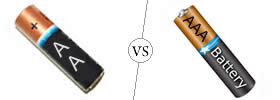Difference between Dubious and Doubtful
Key Difference: The term dubious refers to something that is questionable in character, something that is untrustworthy. Doubtful refer to something that is of uncertain outcome or result. It also refers to unsettled in opinion or belief; something that is undecided or hesitating. Hence it can be said that something that is doubtful is IN DOUBT, whereas something that is dubious is a CAUSE OF DOUBT.

 The terms dubious and doubtful are quite similar. So much so, that they are in fact used as synonyms. However, while the two words are quite similar to each other, they do slightly differ from each other. Hence, there are instances where the words can be used interchangeably without having an impact on the meaning of the sentence or phrase. However, there are times where they can’t be used interchangeably without slightly changing the meaning of the sentence as well.
The terms dubious and doubtful are quite similar. So much so, that they are in fact used as synonyms. However, while the two words are quite similar to each other, they do slightly differ from each other. Hence, there are instances where the words can be used interchangeably without having an impact on the meaning of the sentence or phrase. However, there are times where they can’t be used interchangeably without slightly changing the meaning of the sentence as well.
The term dubious refers to something that is questionable in character, something that is untrustworthy. It can also refer to something that is uncertain or undecided. Dubious refers to that is questionable, i.e. it can be doubted. Something that causes doubt, uncertainty, or suspicion and is likely to be bad or wrong, which is why we are dubious about it and don’t trust it. Basically, dubious arouses doubt; is questionable, and open to suspicion.
 Doubtful refer to something that is of uncertain outcome or result. It also refers to unsettled in opinion or belief; something that is undecided or hesitating. Doubtful is basically something that causes doubt, and is uncertain and ambiguous. It is also something that raises doubts as to legitimacy, honesty, or respectability.
Doubtful refer to something that is of uncertain outcome or result. It also refers to unsettled in opinion or belief; something that is undecided or hesitating. Doubtful is basically something that causes doubt, and is uncertain and ambiguous. It is also something that raises doubts as to legitimacy, honesty, or respectability.
Hence it can be said that something that is doubtful is IN DOUBT, whereas something that is dubious is a CAUSE OF DOUBT. There are instances where these are one and the same, however, in common usage that two terms, dubious and doubtful have different implications. Doubtful is generally used to imply uncertainty about facts, whereas dubious implies suspicion about the value or genuineness. In common tongue, dubious has more of a negative or ominous tone, which is why it is commonly used in instances that are more dire or serious that doubtful. Doubtful is more commonly used to indicate something that is undecided or uncertain, or something that is suspicious and can be doubted.
Comparison between Dubious and Doubtful:
|
|
Dubious |
Doubtful |
|
Type |
Adjective |
Adjective |
|
Definition (Merriam-Webster) |
|
|
|
Description |
Doubtful is more commonly used to indicate something that is undecided or uncertain, or something that is suspicious and can be doubted. |
Dubious has more of a negative or ominous tone, which is why it is commonly used in instances that are more dire or serious that doubtful. |
|
Examples |
|
|
Image Courtesy: homepages.se.edu, carlycoopercoaching.com









Add new comment